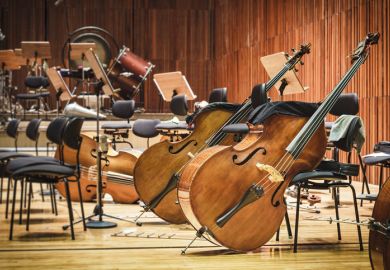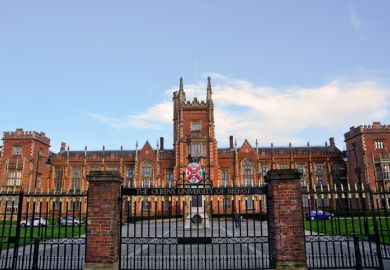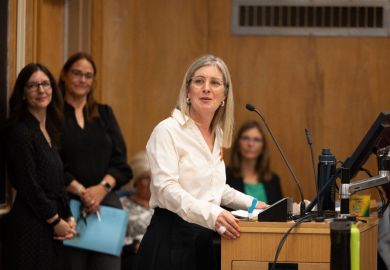This time four years ago, I was interviewing applicants for a joint undergraduate degree in history and literature. This was a job I’d come to treasure over the years; new thinkers are always interesting, and joint honours students often particularly so.
But something was different. The interviews took place about a week after Donald Trump’s presidential election victory and five months since the UK’s vote to leave the European Union. Their tone had changed. When I asked “Why history?”, candidate after candidate replied along similar lines: “I want to know what really happened”; “I want to understand how to get to reliable sources”; “I need to know when I am being lied to”.
The Instagram generation had woken up early to something that would later become clear to the rest of us. You can spin the world all you like – “That’s your opinion,” we can say to one another; “I see it differently” – but when a shared world of tangible evidence somehow becomes irrelevant to our politics, we’re in different territory altogether.
Once the facts don’t matter, anything becomes possible – even the impossible, as the political theorist Hannah Arendt once said, describing the totalitarian elements of the past century. As Donald Trump continues to refuse to concede the fact that he has lost the 2020 election, it seems that we’re not yet quite done with dangerous impossibilities.
You might think that literature students would be fine with a world of made-up stories, but this would be to miss the moral seriousness of humanities study. Ask a student why they want to study literature and they usually say they are interested in people, the mind, emotions. What they are also saying is that they are interested in how we have imagined one another across the centuries: how we’ve come to agree about what counts as a life, and what it means to live together with the mysteries, pleasures and dangers of human otherness.
These are the kinds of questions that matter very much when it comes to the political and legal business of creating the rights and norms by which we live together.
We’ve known for some time that common sense isn’t doing so well just now. It is hard to maintain a shared sense of the world when our perceptions, understanding and judgements are being constantly provoked, agitated and manipulated – click, rage, repeat. It is no coincidence that, at the same time, humanities scholars are being told, not always accurately, that their subjects are struggling and that while they are nice to have on top of the real-world stuff – sometimes they can even help – they’re not exactly core to what society needs from higher education.
Yet the stark truth is that if we cannot find the narrative and imaginative forms to make the world real to one another, we run the risk of permanently losing our politics – and so the sense of our lives together – to the fantasists and cynical purveyors of lies. To prevent that, we have to start taking seriously again the humanities’ rigorous attention to detail, difference, difficulty and context.
This can no longer mean evoking an Anglo-European humanism, confident of its values and judgements but unable to learn from the writers and thinkers within minority communities or from the Global South who have more reason than most to understand injustice and suffering. Decolonisation is important for inclusivity, but it is also a powerful statement of our core activity. Who matters, what counts as a life, and how that counting has been done is at the centre of humanities enquiry. How that human story gets told is intensely important, to ourselves, our communities, and our future – which leads me back to the Class of 2016’s concern to protect the reality of the facts.
All history students understand that each generation will rearrange the facts according to their views and that history is in large part storytelling. But plausible storytelling requires painstaking and often imaginative documentation, which is no mean feat in world where an apparent abundance of information is so hard to access and interpret.
Still, documenting by itself is never enough. In the phoney culture wars – as in the phoney science wars of climate change and now Covid-19 – researchers have tirelessly been shouting “facts” only for their words to be dismissed as “opinion” or ground down into tweet-size nuggets of ignorant outrage.
This is not simply due to social media and political manipulation but because our reality right now is difficult to comprehend. There is a deadly plague we can barely control, a planet gasping for breath, racism, gross inequality, fear. Finding the forms of understanding that might make these horrors bearable is the most urgent task of the humanities right now – and not merely to offer solace.
“When the facts come home to roost, let us at least make them welcome,” Arendt wrote in 1975, in the wake of an earlier wave of political lying that drove the American republic to the brink. Now seems a good time to think seriously and creatively about how we make the facts welcome again.
Lyndsey Stonebridge is professor of humanities and human rights at the University of Birmingham. Her latest book, Writing and Righting: Literature in the Age of Human Rights, is published with Oxford University Press at the end of this month.
Register to continue
Why register?
- Registration is free and only takes a moment
- Once registered, you can read 3 articles a month
- Sign up for our newsletter
Subscribe
Or subscribe for unlimited access to:
- Unlimited access to news, views, insights & reviews
- Digital editions
- Digital access to THE’s university and college rankings analysis
Already registered or a current subscriber?








